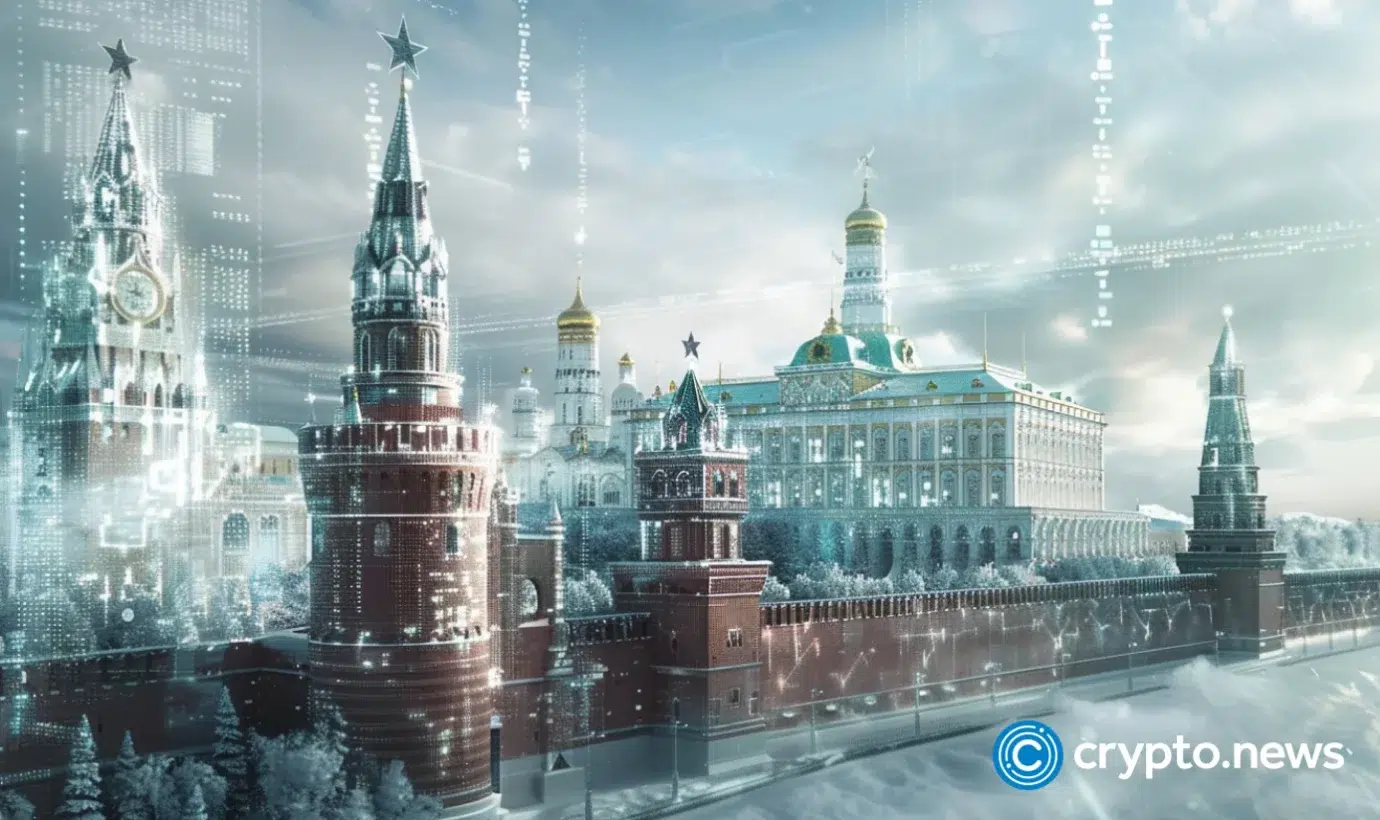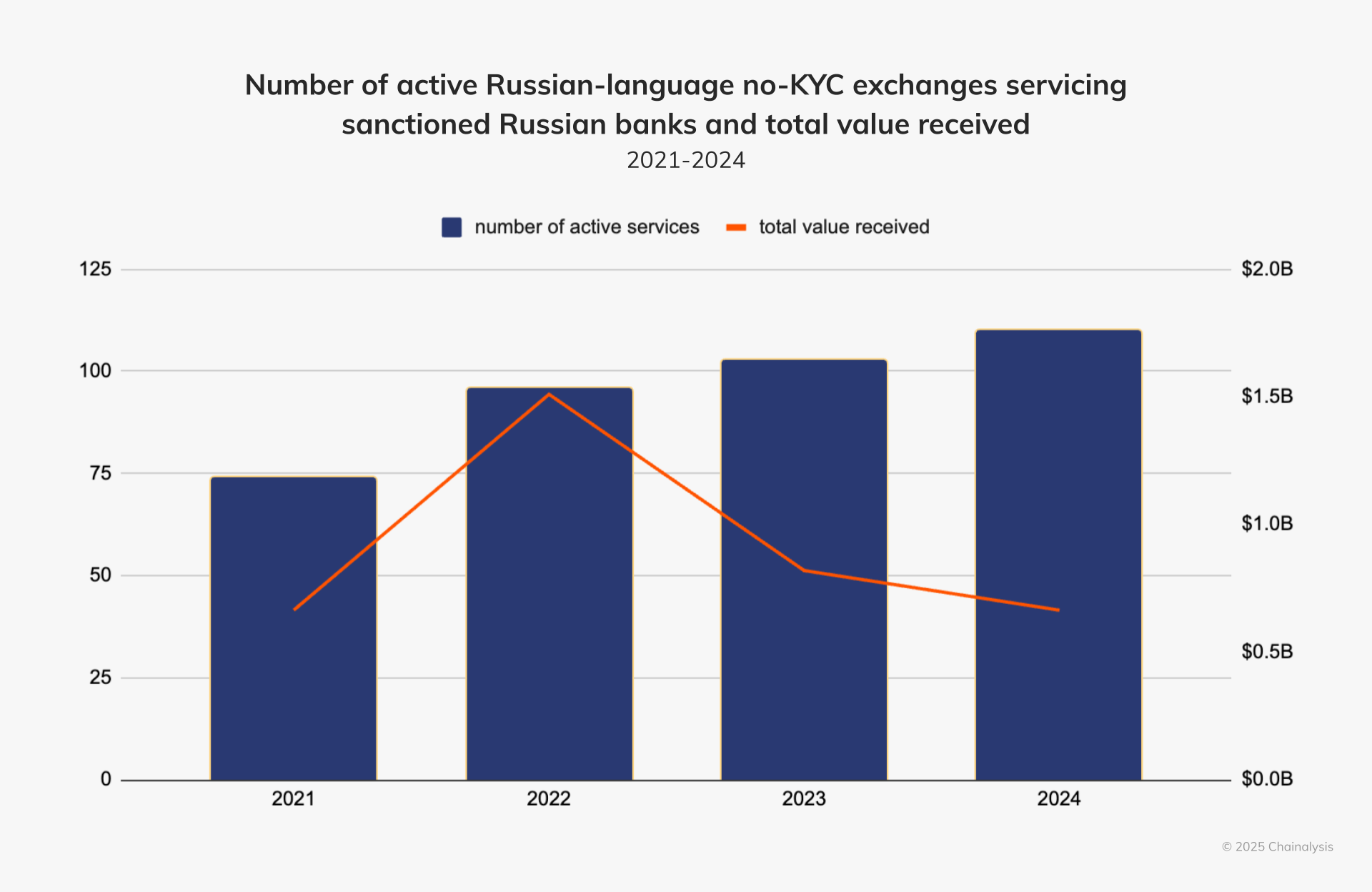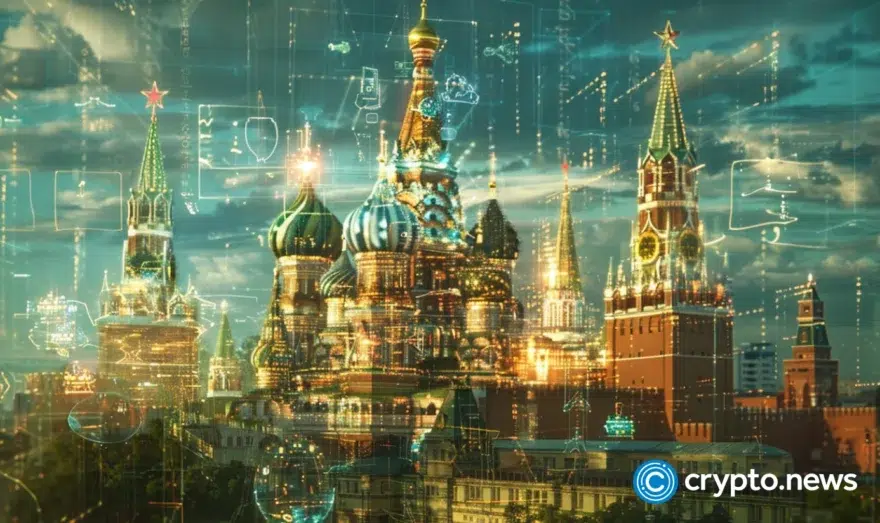Russian no-KYC crypto exchanges continue to emerge, but inflows decline, Chainalysis says

Russian no-KYC crypto trading platforms keep reappearing despite crackdowns, often as rebranded versions of shut-down platforms.
New Russian-language no-KYC crypto exchanges keep emerging to replace those shut down, despite repeated crackdowns, according to blockchain forensic firm Chainalysis. While more platforms are appearing, overall inflows have declined, suggesting U.S. and international sanctions are having an impact, the firm said in a Feb. 19 blog post.

The newly-reopened platforms usually operate in Russian and often work with sanctioned Russian banks, Chainalysis says. However, they usually lack incorporation or registration details, making it hard to determine their legal jurisdiction.
Chainalysis did not provide exact numbers on the emergence of new platforms or changes in their volumes, but the firm’s graph suggests that over 100 no-KYC Russian platforms were active in 2024, with more than $1.5 billion in value received.
In early February, the Russian telecoms watchdog Roskomnadzor blocked access to BestChange, one of the largest crypto over-the-counter aggregators in Eastern Europe and Russia. The ban came almost six months after Russia introduced a new law on Bitcoin mining and crypto ads. The law blocks ads for digital assets and anything that helps move crypto around, including services that let users transfer it using Russian infrastructure.
Meanwhile, Bitcoin (BTC) miners in Russia are not thrilled about a new government registry that’s scooping up sensitive data, including crypto wallet addresses, under new rules. If leaked, it could be a “big gift to our geopolitical opponents,” warned Anton Gorelkin, a Russian lawmaker overseeing information policy.















